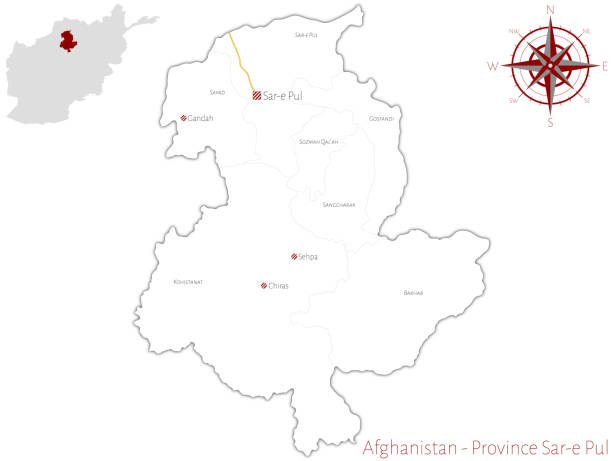The Center for the Scientific Study of Families reports are designed to provide relevant information about the conditional state of families in a specified context. The report provides information such as population, culture, family structure, and family life.
Family reports are an important tool for improving the lives of families. By providing information about the family’s conditional state and context, family reports can help improve communication between families and service providers and lead to better outcomes for families and children.
Introducing Sar-e-Pul, Afghanistan
Sar-e-Pul, a northern Afghan province, is characterized by a diverse landscape that includes mountains, valleys, and fertile plains. There are several other provinces surrounding it, including Jowzjan to the west, Balkh to the east, Samangan to the southeast, and Ghor to the south. The provincial capital of Sar-e-Pul province is also named Sar-e-Pul. It’s a relatively small city with a mix of urban and rural elements.
Sar-e Pol is a major agricultural center, producing wheat, barley, cotton, and fruits. The city is also home to a number of small industries, including textiles, carpets, and food processing. Its population is just over 600,000.
Cultural and Ethnic Diversity
The different cultural and ethnic groups in Sar-e-Pul have their own unique customs and traditions. However, they also share a common Afghan identity. Below is an ethnic breakdown of the province provided by the U.S. Naval Postgraduate School:
Tajiks: The Tajiks are the largest ethnic group in Sar-e-Pul, making up about 60% of the population. They are Persian-speaking Sunni Muslims who have a long history in the region.
Uzbeks: The Uzbeks are the second largest ethnic group in Sar-e-Pul, making up about 25% of the population. They are Turkic-speaking Sunni Muslims who also have a long history in the region.
Hazaras: The Hazaras are a minority ethnic group in Sar-e-Pul, making up about 10% of the population. They are Persian-speaking Shia Muslims who have a distinct culture and history. The Hazaras are known for their resilience and their strong sense of community.
Pashtuns: The Pashtuns are a minority ethnic group in Sar-e-Pul, making up about 5% of the population. They are Pashto-speaking Sunni Muslims, who are the largest ethnic group in Afghanistan.
Kuchi Nomads: The Kuchi Nomads are a minority ethnic group in Sar-e-Pul, making up about 1% of the population. They are nomadic people who travel the region with their herds of sheep and goats.
Family Demographics
The family size among the groups in Sar-e-Pul, Afghanistan, varies depending on the ethnic group. In general, Tajik families tend to be larger than Uzbek families, and Hazara families tend to be larger than Pashtun families.
According to a study by the Afghanistan Research and Evaluation Unit, the average family size in Sar-e-Pul is 5.8 people. However, the average family size for Tajiks is 6.5 people, the average family size for Uzbeks is 5.2 people, the average family size for Hazaras is 7.2 people, and the average family size for Pashtuns is 4.9 people.
The country’s security situation also has an impact on the size and makeup of the families in Sar-e-Pul. The ongoing conflict has forced many families to flee their homes and live in displacement camps. This has led to an increase in the number of single-parent households and households with extended family members.
The literacy rate in Sar-e-pul is less than 20%. This also plays a role in family size and structure in Sar-e-Pul, which are affected by the availability of education and employment opportunities. Families with more education and employment opportunities tend to have smaller families. This is because they are more likely to be able to afford to raise children and because they are more likely to have jobs that require them to travel or relocate.
Conclusion
Family life in Sar-e-Pul is complex and diverse. The ethnic group, the religion, and the economic situation all have an impact on it. Families in Sar-e-Pul face a number of challenges, but they also have a strong sense of community and a strong desire to provide for their children. As Sar-e-Pul navigates social and economic changes, understanding the complexities of family life among its diverse groups is crucial for fostering unity, resilience, and progress.





